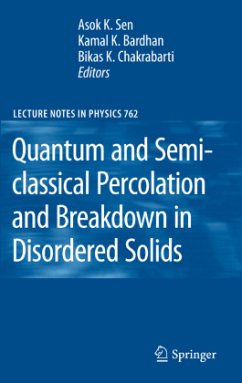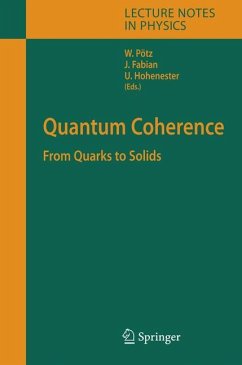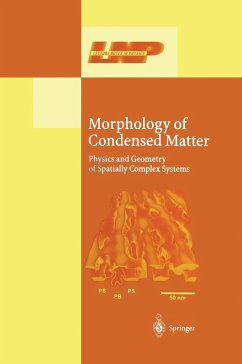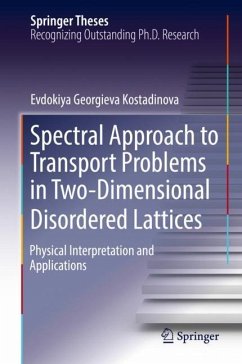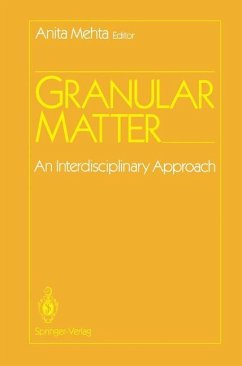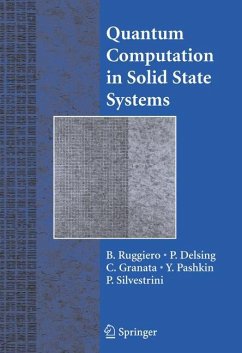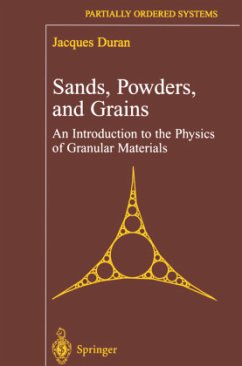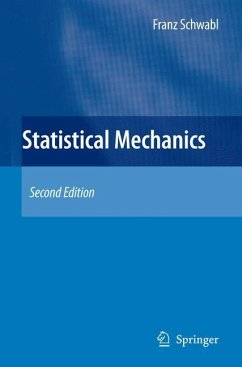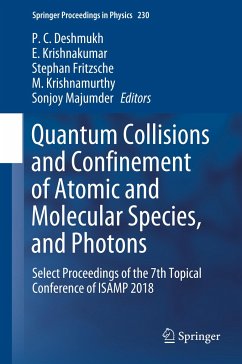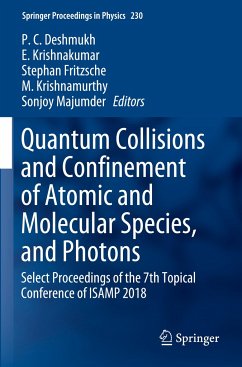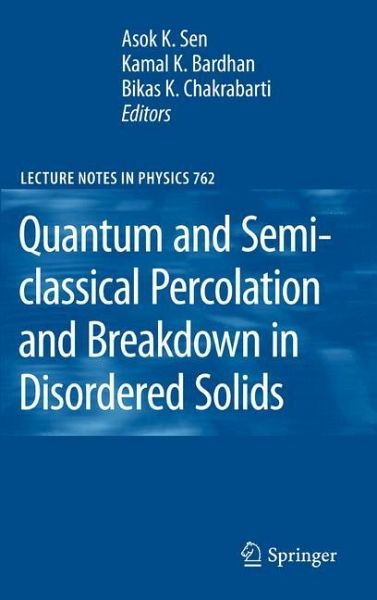
Quantum and Semi-classical Percolation and Breakdown in Disordered Solids

PAYBACK Punkte
20 °P sammeln!
This set of extensive tutorial reviews and lectures focuses on the semi-classical and quantum aspects of percolation methods and their application to breakdown phenomena in disordered composite or granular materials. It sets out to connect - for the first time and in a coherent fashion - many recent theoretical and experimental advances in adjacent fields, such as the investigation of nonlinear current-voltage characteristics of 'quantum-dotted' materials or Zener breakdown in Mott or Anderson insulators. Last but not least, a final chapter explores the application of quantum percolation methods to the rapidly emerging field of quantum computing and communication.
This lecture notes in physics volume mainly focuses on the semi classical and qu- tum aspects of percolation and breakdown in disordered, composite or granular s- tems. The main reason for this undertaking has been the fact that, of late, there have been a lot of (theoretical) work on quantum percolation, but there is not even a (single) published review on the topic (and, of course, no book). Also, there are many theoretical and experimental studies on the nonlinear current-voltage characteristics both away from, as well as one approaches, an electrical breakdown in composite materials. Some of the results are quite intriguing and may broadly be explained utilising a semi classical (if not, fully quantum mechanical) tunnelling between - cron or nano-sized metallic islands dispersed separated by thin insulating layers, or in other words, between the dangling ends of small percolation clusters. There have also been several (theoretical) studies of Zener breakdown in Mott or Anderson in- lators. Again, there is no review available, connecting them in any coherent fashion. A compendium volume connecting these experimental and theoretical studies should be unique and very timely, and hence this volume. The book is organised as follows. For completeness, we have started with a short and concise introduction on classical percolation. In the ?rst chapter, D. Stauffer reviews the scaling theory of classical percolation emphasizing (biased) diffusion, without any quantum effects. The next chapter by A. K.





